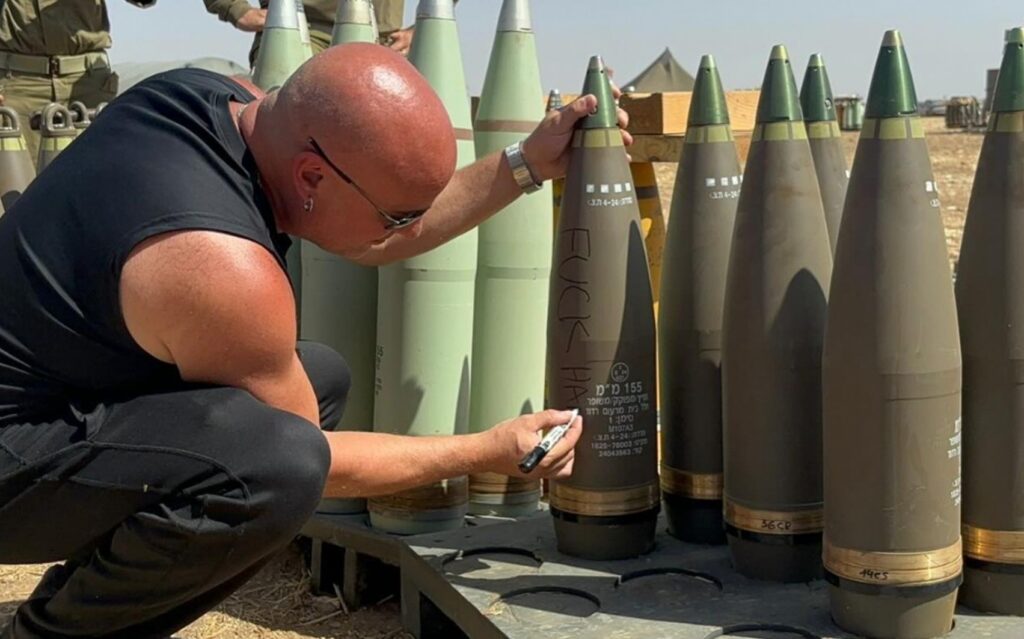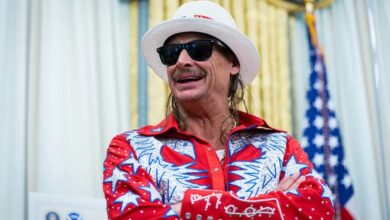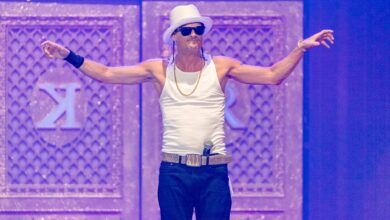DISTURBED’s Belgian concert cancelled after DAVID DRAIMAN’s controversial photo signing IDF missiles sparks backlash

The cancellation of Disturbed’s upcoming Belgian show has sparked major controversy across the rock community. The decision was made after local authorities raised concerns about public safety following frontman David Draiman’s recent political actions. Officials in Brussels reportedly halted the concert that was set to take place at Forest National, citing potential unrest linked to the singer’s divisive image. The situation has reignited debates over the intersection of music, politics, and free expression in an increasingly polarized world.
According to city officials, the cancellation came after a police risk assessment indicated possible protests and clashes if the event went ahead. The venue, located in a densely populated area, was deemed too risky for a performance expected to attract thousands of fans. The local mayor emphasized that the primary responsibility was to ensure the safety of residents and concertgoers, even if it meant canceling a high-profile international act like Disturbed.
At the center of the storm is a photograph from 2024 showing David Draiman signing an Israeli missile with the words “Fuck Hamas.” The image went viral, drawing sharp criticism from fans and activists who viewed the act as politically provocative and insensitive. For supporters, it was a gesture of solidarity; for critics, it symbolized taking sides in a deeply complex and tragic conflict. This incident has since followed Draiman everywhere, shaping how audiences and governments perceive him.
Belgian officials reportedly feared that protests from both sides of the conflict could spill into violence. With the ongoing tensions in Europe regarding the Middle East, local authorities decided that a rock concert was not worth the potential risk of riots or security breakdowns. For many fans, however, the decision felt like censorship — an example of politics infringing upon art and entertainment.
Disturbed’s management expressed disappointment but appeared to understand the gravity of the decision. While the band has faced occasional backlash before, an official government ban marks a serious escalation. Many in the rock world are now questioning how far political expression can go before it begins to cost artists their freedom to perform.
David Draiman, known for his outspoken nature, has long mixed personal beliefs with his public persona. While that authenticity once endeared him to fans, it has lately become a double-edged sword. The missile photo reignited old tensions and intensified perceptions that he represents a divisive figure — one equally admired and condemned.
The recent cancellation also brings back memories of another moment that defined his turbulent year: the night he was booed during Ozzy Osbourne’s farewell show. As part of the “Back to the Beginning” celebration, Draiman joined a lineup of legendary guests to honor Ozzy and Black Sabbath. Yet when he took the stage, sections of the crowd reacted negatively, booing and shouting as he began to sing.
Many interpreted the reaction as a response not to his musical talent but to his political image. While Ozzy’s fans came to celebrate the music and legacy of metal, Draiman’s recent controversies had shifted the focus to politics. For some, his presence felt inappropriate for a night meant to celebrate unity in rock music.
Despite the hostile crowd, Draiman completed his performance with professionalism. He later downplayed the incident, insisting that only a small part of the audience had booed, while others cheered. Nonetheless, the footage circulated widely, reinforcing the image of a musician caught in the crossfire of global politics and fan expectations.
Draiman has repeatedly stated that he refuses to apologize for expressing his views. He argues that silence in the face of violence or hatred is complicity and that every artist has the right to take a moral stand. Yet, as recent events show, moral stands in today’s world often come with real-world consequences that extend far beyond social media debates.
For many longtime fans, the issue isn’t about politics but timing. They feel Draiman’s outspoken activism distracts from his music, overshadowing the emotional and social themes that once made Disturbed so powerful. The band’s message of resilience and unity now feels at odds with its public controversies.
The cancellation in Belgium also highlights how political climates differ across countries. While the same performance might go ahead without issue in the United States or Israel, European nations are increasingly sensitive to displays seen as politically inflammatory. This global inconsistency creates confusion for touring artists navigating international stages.
Industry analysts suggest that the incident could have financial implications beyond Belgium. Other European promoters might hesitate to book Disturbed until the political tension cools. Some even predict a decline in festival invitations, at least temporarily, as organizers prioritize risk management over star power.
On the other hand, Draiman’s defenders argue that he’s being unfairly targeted for exercising freedom of expression. To them, the Belgian government’s move represents a dangerous precedent, where political disagreements can silence performers entirely. They believe art should remain a space for emotion, rebellion, and truth — even when uncomfortable.
In the end, the story of David Draiman’s booing and the Belgian cancellation paints a vivid picture of how fragile the balance between art and politics has become. What began as a personal statement spiraled into a global conversation about identity, responsibility, and freedom. For Draiman, it’s another test of endurance in a career defined as much by defiance as by the music itself.





